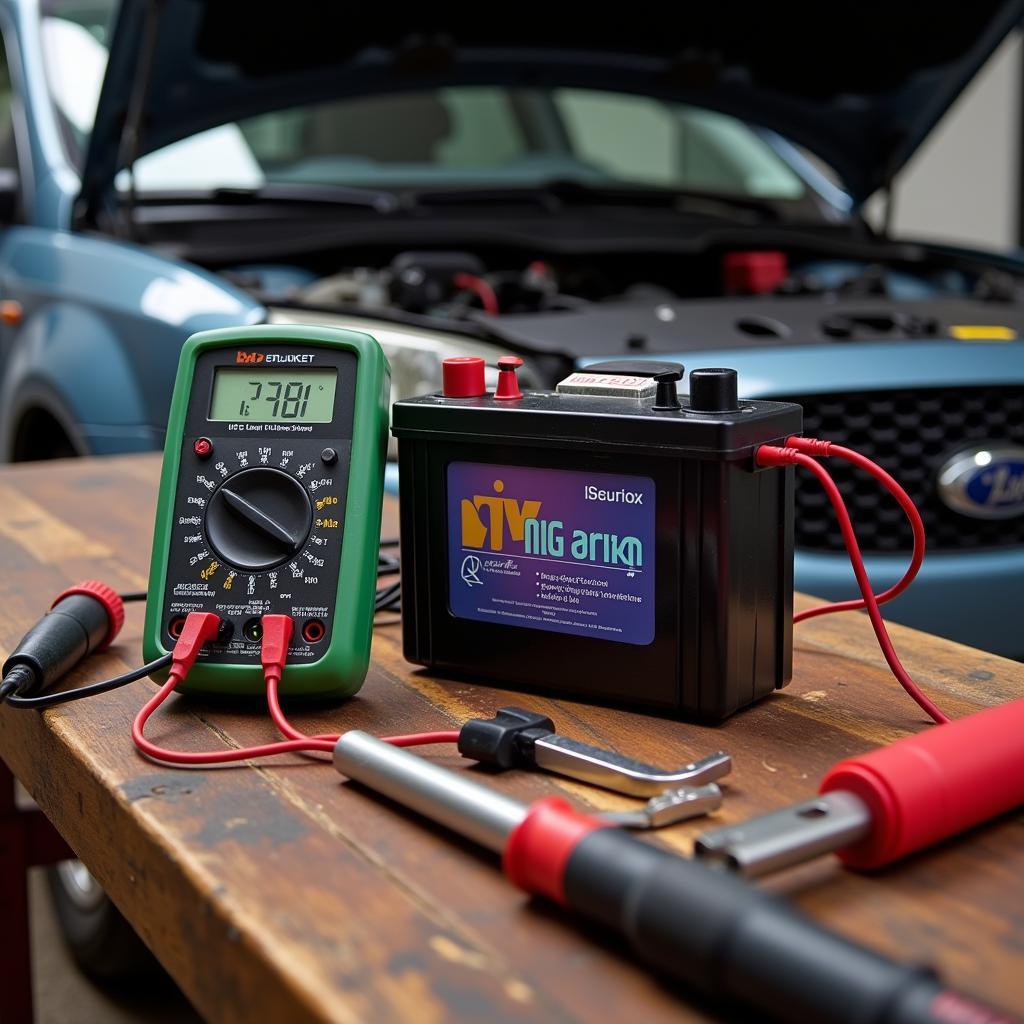A glowing warning light on your Honda Odyssey’s dashboard is never a welcome sight, especially when it concerns your brakes. Is that pesky brake light staring you down? Don’t panic! We’ll guide you through understanding why your Honda Odyssey’s warning light might be on for brakes and equip you with the knowledge to address the issue.
Common Reasons Your Honda Odyssey Brake Warning Light is On
There are several reasons why your Honda Odyssey brake warning light might be illuminated. Some of these are simple fixes, while others might require professional attention. Let’s break it down:
1. Parking Brake is Engaged: This may seem obvious, but it’s a common culprit. Before you worry, double-check that your parking brake is fully released.
2. Low Brake Fluid: Your brake system relies on hydraulic pressure from brake fluid to function correctly. If the fluid level is low, it can trigger the warning light. Check your brake fluid reservoir. If it’s low, there might be a leak that needs immediate attention.
3. Worn Brake Pads: Your brake pads have wear indicators that create a high-pitched squealing sound when they wear thin. This sound is your cue to replace your brake pads. Ignoring it can lead to further damage and ultimately trigger the brake warning light.
4. Faulty Brake Light Switch: The brake light switch is responsible for activating your brake lights when you press the pedal. A malfunctioning switch can cause issues with the brake light system, including illuminating the warning light on your dashboard.
5. ABS Issue: Your Honda Odyssey is equipped with an Anti-lock Braking System (ABS). If the ABS system encounters a problem, it can trigger the brake warning light. This usually requires a professional diagnosis to pinpoint the exact issue.
 Checking brake fluid level in Honda Odyssey
Checking brake fluid level in Honda Odyssey
What to Do When Your Honda Odyssey Brake Warning Light Comes On
1. Safety First: If the warning light comes on while driving, pull over when it is safe to do so. Driving with compromised brakes can be extremely dangerous.
2. Check the Obvious: As mentioned before, make sure your parking brake isn’t engaged.
3. Inspect Your Brake Fluid: If you feel comfortable, carefully check the brake fluid level. Refer to your owner’s manual for the location of the reservoir and instructions.
4. Listen for Unusual Sounds: Pay attention to any unusual noises like grinding or squealing when you apply the brakes.
5. Don’t Delay Professional Help: If you suspect a serious issue or are unsure about anything, do not hesitate to contact a qualified mechanic specializing in Honda vehicles.
Can You Drive With the Brake Warning Light On?
The short answer is: it’s not recommended. Driving with the brake warning light on puts you and others at risk. While it might be tempting to ignore the light, especially if you’re in a hurry, it’s crucial to prioritize safety and address the issue promptly.
How Serious Is a Brake Warning Light?
A brake warning light can indicate anything from a minor issue like worn brake pads to a more serious problem like a brake fluid leak or a malfunctioning ABS system. The severity depends on the root cause.
“Remember, neglecting your brakes can lead to expensive repairs down the line. Early detection and prompt action are key to ensuring your Honda Odyssey’s braking system stays in top shape.” – John Davis, Certified Automotive Technician
Remote Diagnostics and Software Solutions
In some cases, remote diagnostics and software solutions can be utilized to diagnose and even repair certain brake-related issues. These advanced technologies allow technicians to remotely access your Honda Odyssey’s onboard computer, retrieve diagnostic trouble codes, and even perform software updates or programming if necessary.
Keeping Your Honda Odyssey’s Brakes in Top Condition
- Regular Maintenance: Adhere to your Honda Odyssey’s recommended maintenance schedule for brake inspections and fluid flushes.
- Quality Parts: Always use high-quality brake pads, rotors, and fluids designed for your specific model.
- Pay Attention: Be mindful of any changes in your brake pedal feel, unusual noises, or warning lights.
- Don’t Ignore Warning Signs: Address any brake-related concerns promptly to avoid further damage and ensure your safety.
FAQ
Q: How often should I check my brake fluid?
A: It’s good practice to check your brake fluid level at least once a month and top it off if necessary.
Q: How long do brake pads last?
A: Brake pad lifespan varies depending on driving habits and conditions. Generally, they can last anywhere from 30,000 to 70,000 miles.
Q: Can I add any brake fluid to my Honda Odyssey?
A: No, it’s crucial to use the brake fluid type specified in your owner’s manual. Using the wrong type can damage your braking system.
Q: Is it safe to drive with the parking brake slightly engaged?
A: No, driving with the parking brake even partially engaged can cause significant damage to your brakes and other components.
Q: What does it mean if my brake warning light is flashing?
A: A flashing brake warning light usually indicates a more serious issue with the braking system, such as a problem with the ABS system. Seek professional help immediately.
By staying proactive and informed about your Honda Odyssey’s brake system, you can ensure optimal performance and, most importantly, your safety on the road. If you ever encounter any issues, don’t hesitate to consult a qualified mechanic who specializes in Honda vehicles. Remember, when it comes to brakes, it’s always better to be safe than sorry!

